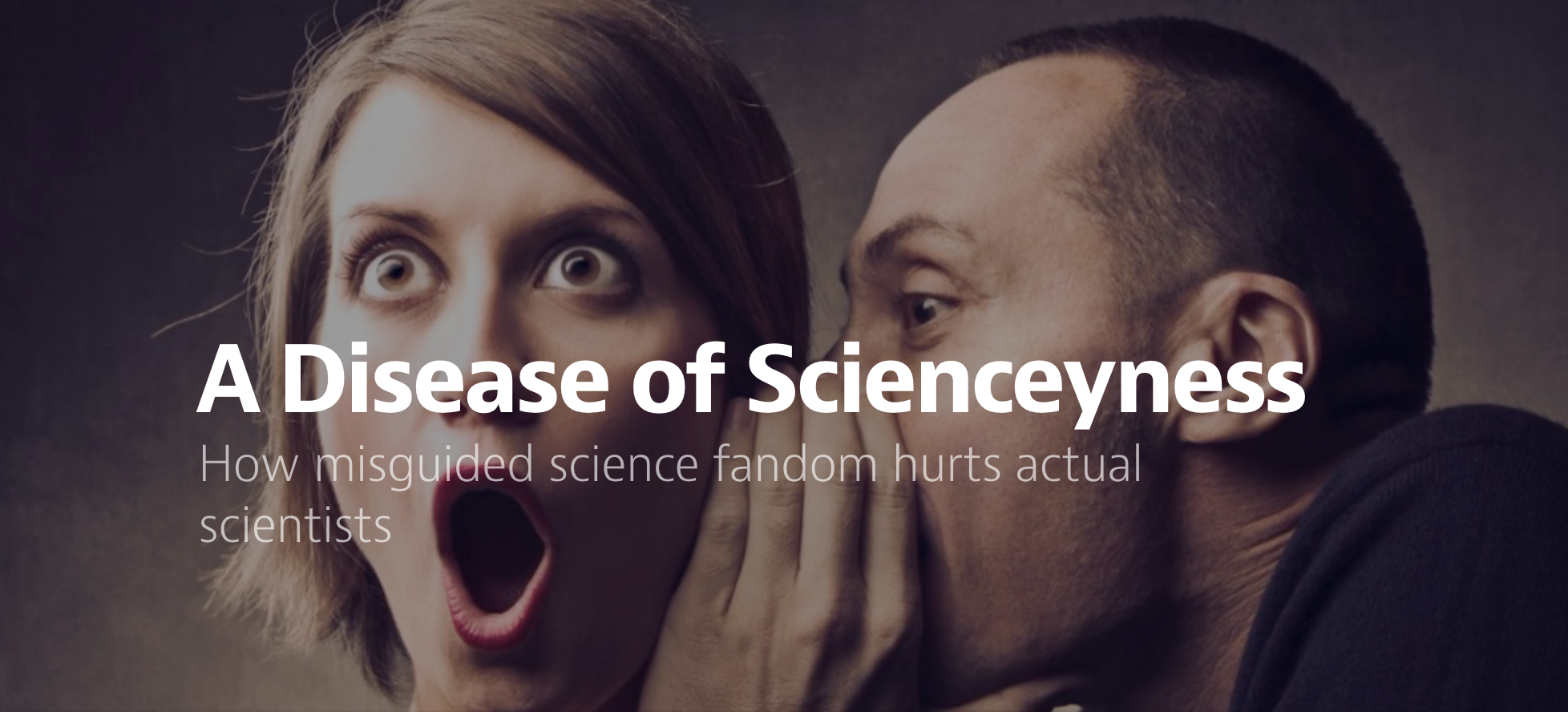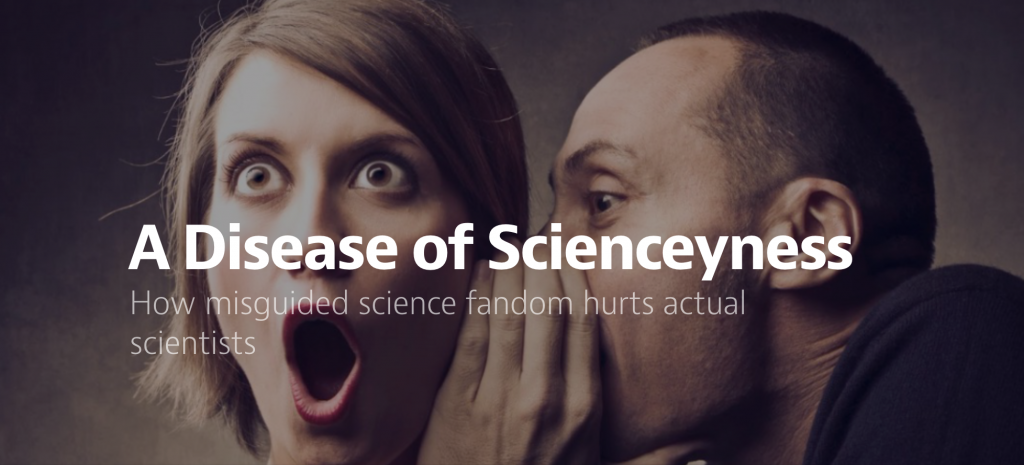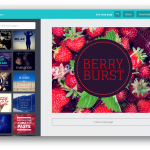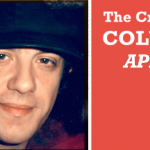If you love science: avoid scienceyness like the plague
Scienceyness is something we all should stay away from. The word was recently coined in an article on medium.com by Ben Thomas—author, journalist and independent researcher. His message in short: stop sharing this kind of rubbish!
What Ben Thomas is referring to in his text is not the engaged and responsible dissemination of popular science in social media, but rather the “inaccurate, overblown sciencey headlines that get shared and reshared by people who have no idea whether they’re actually true or not.” As a matter of fact, he is worried that “misguided science fandom hurts actual scientists”.
Original article: A Disease of Scienceyness (Medium, March 2015)
Curious as always, Crastina got in touch for a brief interview.
Hi, Ben. Tell us how you coined the word “scienceyness” and why there is a need for it.
It’s important to distinguish between a love of science itself – in other words, a love of the scientific process, repeatable findings, peer review and so on – and a love of simply re-sharing headlines and pictures that may or may not be scientifically accurate. As I said in my article, you don’t have to be an expert to spread the word about new scientific discoveries – but loving science means caring about the difference between fact and fallacy, at least enough to check where the information you’re sharing comes from, and whether that source is trustworthy.
Why should the scienceyness concept concern the young scientist?
For two reasons. First, scienceyness blurs the distinction between accurate sources and inaccurate ones – which means that if you’re a careful and hardworking young scientist, you’re put on the same level as anyone who posts an eye-catching image and headline, even if that person has no hard data, or even a coherent thesis. Second, scienceyness creates inflated expectations about the timetables and results of projects – which means that if you fail to meet the public’s unrealistic goals, your reputation and your funding are likely to suffer. It’s not fair, but it continues to happen.
Give three pieces of advice to the science communicator who wants to avoid falling into the trap of being sciencey .
If you’re a scientist speaking with the press:
1) Be specific about what your results do indicate and what they don’t, and distinguish very clearly between hard data and your own opinions. It can be helpful to manage expectations by specifying, “These results seem to indicate [X], but they don’t prove it.”
2) Take some time to rehearse what you’re going to say, to make sure you hit all your main points but also manage expectations about your project.
3) Understand that journalists will summarize and clean up your quotes as they see fit – but at the same time, don’t hesitate to contact them to correct a factual error.
If you’re a science journalist:
1) Ask specific questions about what the experiment’s results imply – and don’t assume that the results prove or demonstrate something unless the researcher confirms that they do.
2) Remember that a headline can be both catchy and truthful. If the study is really worth covering, it’s not necessary to blow the findings out of proportion.
3) Whenever possible, let the researcher give your article a quick read-through before publication, to correct any misstatements of the facts.
- Claire Price of Crastina receives outreach award from Royal Society of Biology - October 25, 2020
- Agile Science student project at Brussels Engineering School ECAM: “We can’t wait to try it again!” - August 28, 2020
- Create an infographic in the Lifeology SciArt Infographic Challenge - June 16, 2020
- Adam Ruben – The scientist that teaches undergraduate students comedy - March 27, 2020
- Sam Gregson, Bad Boy of Science: “Comedy helps to bridge the gap” - March 10, 2020
- The Coolest Science Merchandise of 2019 - December 16, 2019
- Science Media Centre (UK) offers guide on dealing with online harassment in academia - November 26, 2019
- Agile project management taught to students and researchers at Karolinska Institutet - September 20, 2019
- Stefan Jansson: Improve your credibility! (Crastina Column, September 2019) - September 6, 2019
- The People’s Poet: Silke Kramprich, tech communicator - August 31, 2019







Leave a Reply
Want to join the discussion?Feel free to contribute!